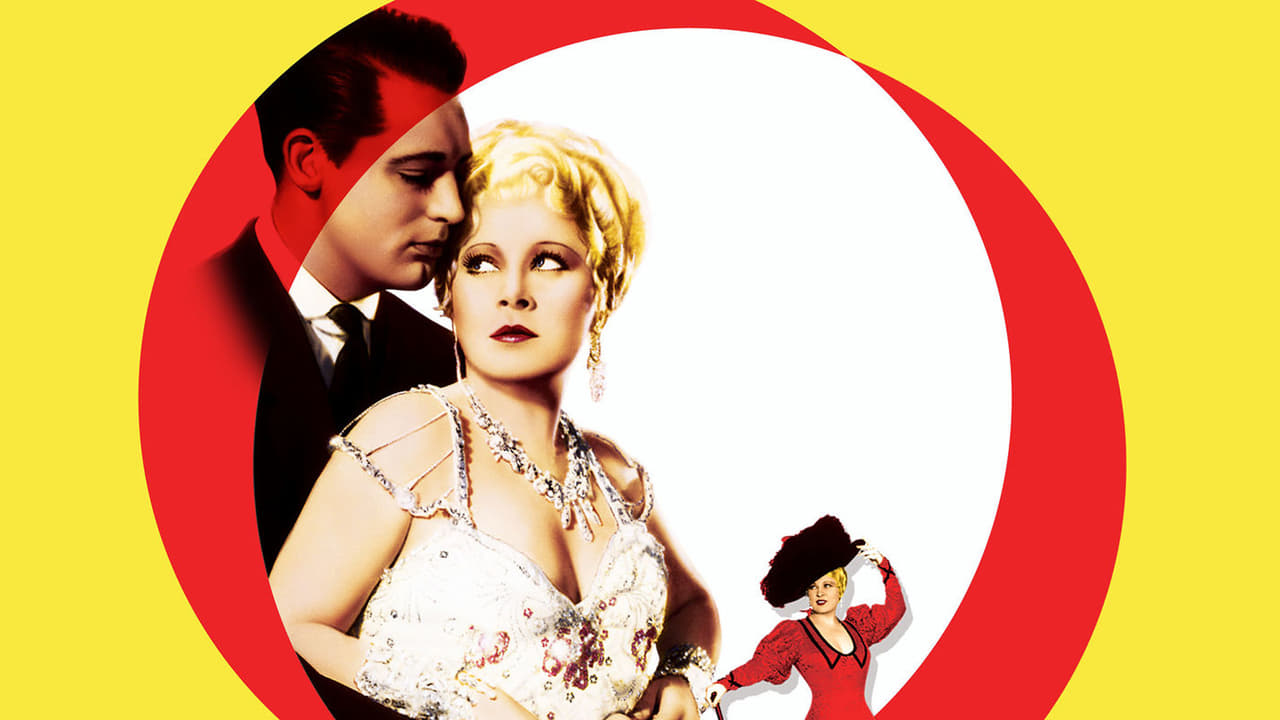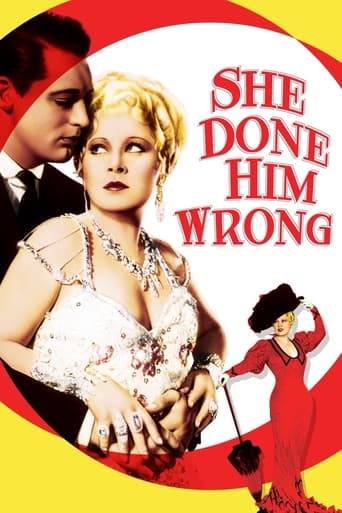

I think this is a new genre that they're all sort of working their way through it and haven't got all the kinks worked out yet but it's a genre that works for me.
... View MoreVery Cool!!!
... View MorePerfectly adorable
... View MoreThis movie feels like it was made purely to piss off people who want good shows
... View MoreIt's interesting that this is one of the films cited as pushing to get the Hays Code in place the following year, since there is certainly less skin shown than many other movies in the time period. What frightened people saw was Mae West, and not her curves that pretty clearly signaled the end of the era of the flappers, but how brazenly she flaunted her sexuality. She purrs and sizes men up and down as she sees them. She makes it clear she wants nothing but a tumble in the hay. This is the first movie she drawls "Why don't you come up sometime 'n see me?" to Cary Grant. Talk about a movie with larger-than-life personalities and accents in Grant and West! The line that summarizes West's persona best from the film is this one: "Men are all alike - married or single. It's their game. I happen to be smart enough to play it their way". To the censors, hypocritically, the idea that women could take control of their sexuality was as bad or worse than seeing a bare thigh here or there.As for the film itself, if you're a Mae West fan, this is probably must-see. It may be of interest to see a younger Cary Grant as well, though I found later he was already 29 at the time (West was ten years older). While I smiled as she slinked around in tight, sparkly dresses, moaning one double entendre after another, she just doesn't do it for me, and the plot which takes place in the 'gay 90's' isn't enough to recommend the film. I did love the very last lines, with Grant saying "You baaad girl", and West smiling and saying "You'll find out" before they kiss. Oh Mae, you're so naughty.
... View MoreThis movie is known for Mae West having said the (often-misquoted) line, "Why don't you come up sometime and see me? I'm home every evening." It even won the award known as "Outstanding Production" for 1933, and it supposedly prompted the Hays Commission to crack down on movie standards.Based on the stage play "Diamond Lil", West plays the girlfriend of a criminal bar owner who has bought her expensive diamonds, but she has cheated on him with a variety of other men. One of them is none other than an undercover policeman who is after said bar owner.The movie had good potential for comedy or drama, but realizes neither. It is instead dull, and Mae West proved to be a weak performer and an even worse singer. Presumably she was more famous for being rebellious than for her talent.
... View MoreIn 1890s New York, saloon singer Lady Lou (Mae West) is attracted to a reformer (Cary Grant) while dealing with many suitors and a psychotic escaped convict (a memorably creepy Owen Moore). This is often called Mae West's best movie. It's a vanity project full of people complimenting her. If there was even the slightest hint West was poking fun at herself I would like this much more. As it is, it's a watchable but pedestrian comedy. Mae spouts one-liners and oozes what I think is supposed to be sex appeal. If you find her attractive, more power to you. Some of her lines are amusing. Mae sings a few songs but they're terrible. Her voice, or lack thereof, is the pits. Obviously she has a lot of fans so this will hold more appeal for them than it did for me. One of Cary Grant's earliest big roles. Also a very weird performance from Owen Moore. Worth seeing to check off your list if you're a film buff.
... View MoreBy the time this movie was made, 1933, Mae West was 40 years old, blowzy and on the market so long, she'd passed her expiration date. Yet, she still managed to effectively maintain herself as a bona fide, self-manufactured icon representing in face and figure the bawdy ladies of the Gay Nineties. She'd spent years on the stage nurturing a public nostalgia for this past era, a period of American history she herself only knew as a child having been born in 1893. With the Roaring Twenties over, and the cultural liberation of the flapper/bootleg era a done deal changing the public perception of what was taboo, her risqué patter full of titillating one liners and sexual innuendo still resonated with an audience. This movie is worth watching just to see West in action and take in what aroused all the legions of decency into a frenzy of outrage. Mae plays Lou, a songstress in a Bowery beer hall performing solo on stage, standing glued into sequined gowns, balancing feathered hats like platters on her head and bodily bejeweled with diamonds, every bauble a souvenir from an endless inventory of male idolaters. While not having a heart of gold, (it's rather steel-plated), she isn't such a bad gal. Lou's got one deranged lover doing time in the pen and obsessed with breaking out and re-possessing her as his exclusive property. We've got the sleazy owner of the joint, Gus Jordan, played by Noah Beery Sr., a conniver who's got his larcenous hand in all kinds of criminal sidelines from counterfeiting to white slavery. Cary Grant in his film debut as Captain Cummings, is tasked with a character that certainly allows him little in the way of exercising his supreme acting gifts. Aside from his good looks and distinct accent, nothing here hints of his future professional glory. Cummings runs a mission for lost souls; an ersatz Salvation Army do- gooder. Lou catches his eye and he catches hers but the motives behind their attraction is anything but mutual. Is Cummings simply wearing his heart on his sleeve? It's certainly not where he chooses to display his police badge. This movie is an entertaining antique curio worthwhile watching just to see Mae West and get a taste of what made up her popularity and the uproar that surrounded her. The appearance of film newbie Cary Grant is an added attraction
... View More